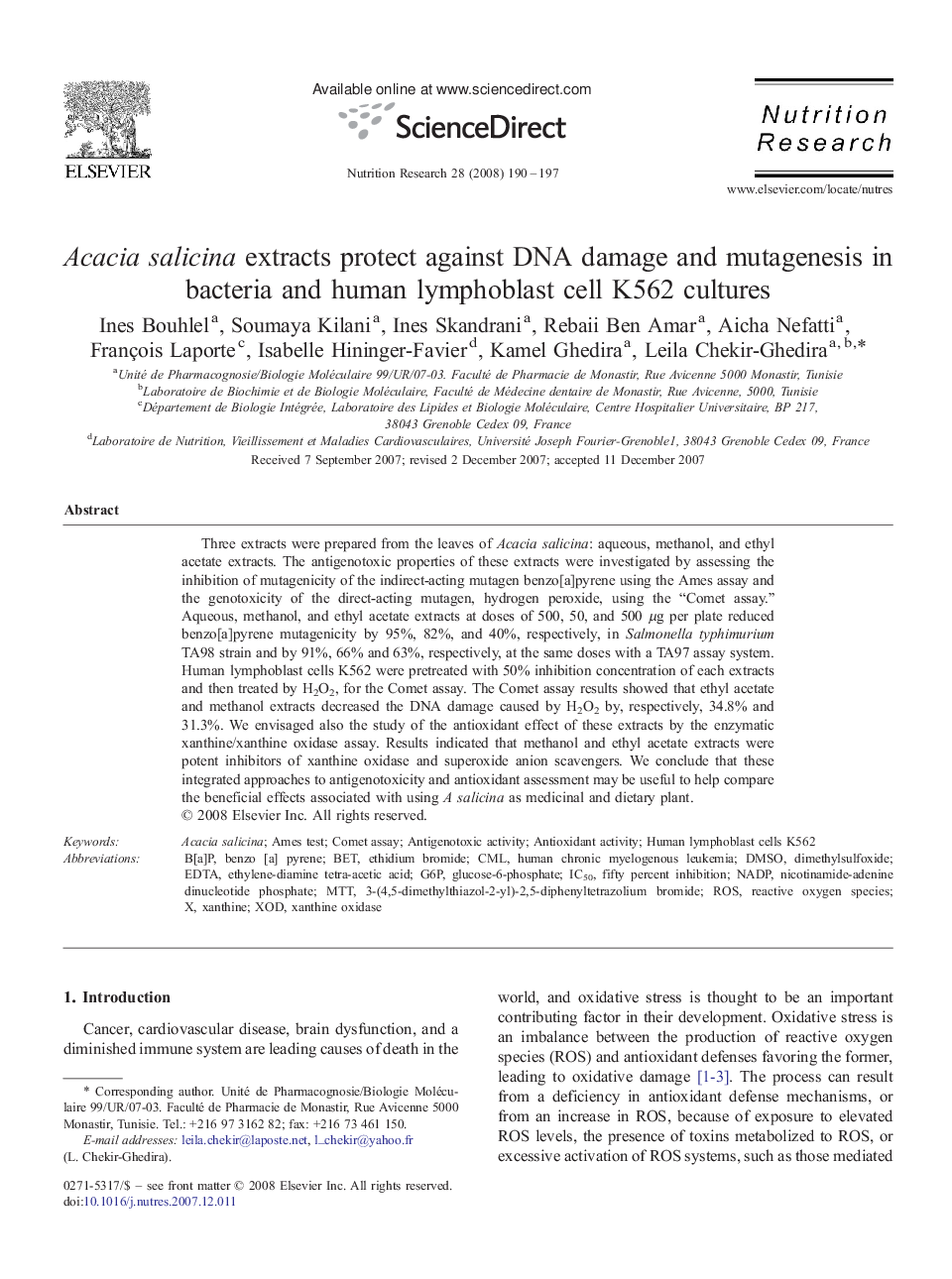| Article ID | Journal | Published Year | Pages | File Type |
|---|---|---|---|---|
| 2809576 | Nutrition Research | 2008 | 8 Pages |
Three extracts were prepared from the leaves of Acacia salicina: aqueous, methanol, and ethyl acetate extracts. The antigenotoxic properties of these extracts were investigated by assessing the inhibition of mutagenicity of the indirect-acting mutagen benzo[a]pyrene using the Ames assay and the genotoxicity of the direct-acting mutagen, hydrogen peroxide, using the “Comet assay.” Aqueous, methanol, and ethyl acetate extracts at doses of 500, 50, and 500 μg per plate reduced benzo[a]pyrene mutagenicity by 95%, 82%, and 40%, respectively, in Salmonella typhimurium TA98 strain and by 91%, 66% and 63%, respectively, at the same doses with a TA97 assay system. Human lymphoblast cells K562 were pretreated with 50% inhibition concentration of each extracts and then treated by H2O2, for the Comet assay. The Comet assay results showed that ethyl acetate and methanol extracts decreased the DNA damage caused by H2O2 by, respectively, 34.8% and 31.3%. We envisaged also the study of the antioxidant effect of these extracts by the enzymatic xanthine/xanthine oxidase assay. Results indicated that methanol and ethyl acetate extracts were potent inhibitors of xanthine oxidase and superoxide anion scavengers. We conclude that these integrated approaches to antigenotoxicity and antioxidant assessment may be useful to help compare the beneficial effects associated with using A salicina as medicinal and dietary plant.
